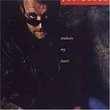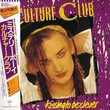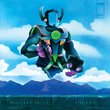| All Artists: Can Title: Future Days Members Wishing: 0 Total Copies: 0 Label: Mute U.S. Release Date: 5/9/1995 Genres: Dance & Electronic, Alternative Rock, International Music, Special Interest, New Age, Pop, Rock Styles: Electronica, Europe, Continental Europe, Experimental Music, Progressive, Progressive Rock Number of Discs: 1 SwapaCD Credits: 1 UPC: 401588700922 |
Search - Can :: Future Days
 | Can Future Days Genres: Dance & Electronic, Alternative Rock, International Music, Special Interest, New Age, Pop, Rock
|
CD DetailsSimilar CDs
|
CD ReviewsThe Mothers Of All Jam Bands And Avant Garde Rock wm | ...onward....thru the fog! | 01/10/2008 (5 out of 5 stars) " When I first heard Talking Heads "Fear of Music" nearly 30(!) years ago, it was a new and strange experience. Keep in mind it was released during a time when what emanated from the radio was what would later become known as "classic rock". "Fear of Music" and "Remain in Light" are widely, and rightfully credited as paving the way for mixing found sounds, polyrhythms, and later, sampling and loops to create rock, pop, and even hip hop music. At the time, I had no idea who CAN were, or that CAN had paved the way for Talking Heads, early Roxy Music, and even mid period Rolling Stones, just to name a few of the big ones. Before these bands used CAN as their blueprint, CAN had taken the Velvet Underground's sound along with Karlheinz Stockhausen and the Beatles' "Revolution #9", and added in polyrhythms, backward tape loops, etc. to come up with their unique sound that was decades ahead of their time. Years before the Stones released "Black and Blue" and "Some Girls", on "Ege Bamyasi", vocalist Malcolm Suzuki sounds nothing so much as an unhinged Mick Jagger. The non lead singer "speak sing" vocalization that David Byrne would later adopt is evident throughout. Another characteristic that's especially evident in Talking Heads, is the riffing by each band member off each other. Not just the drums, but every instrument....guitars, bass, vocals, is used percussively to create evolving, angular jams. Sometimes it's hard to tell whether bird and insect sounds are actually guitar or synthsizer effects. Some of the material from "Future Days" wouldn't be out of place during the Space/Drums part of Grateful Dead's live shows. I was amused in reading the liner notes to the reissued "Future Days". Legend has it the ventilation system at CAN's "Inner Space" (if that name doesn't tell you what was really going on, then read on) studio was malfunctioning during the recording sessions, causing the band members to inhale some type of fumes that affected the sound. One can choose to believe the legend. As far as I'm concerned, suffice it to say that the title of one of CAN's songs, "Mushroom" wasn't coincidental or random. As with other labels and genres, lumping CAN with "Krautrock" is utterly useless, misleading, and confusing. To say CAN were the grandfathers of jam bands and intellectual rock would be much more descriptive. "Ege", "Tago Mago" and "Future Days" are absolutely essential listening if you want to complete the jigsaw puzzle of the greatest music of the 20th century. " So natural, so simple, just amazing mianfei | 11/08/2007 (5 out of 5 stars) "Whilst the ideal of "lo-fi" recording during the 1990s produced too many forgettable moments that critics unnecessarily praised (think of Pavement), in its original incarnation with Can, lo-fi recording was used to a remarkable and quite different effect.
As Richie Unterberger pointed out, Can's use of "spontaneous composition" was a remarkable step in a world of highly orchestrated rock music, and it allowed all four instruemntalists to express themselves in a quite unique manner whilst still working in a watertight manner as a "team" in such a way that the individual musicians were never allowed to indulge themselves as was so common in popular music of the time. Like Roxy's, Can's work has a distinctly feminine tone, but in a very different way, not ecstatic but generally rather quiet yet intense. The initial sounds of the opening title track, which have always appeared to me to be a synthesised version of a teacher wiping a whiteboard(!) get louder in the most amazingly disciplined way over a full nine minutes, so that at the end Suzuki's voice can be seen to have considerable intensity and passion. In addition, the lyrics - actually easy enough to decipher - really stand as a warning against so many cultural trends - both of instant gratification and of ecological destruction. "Spray" was even quieter, like a glowing light in the darkest of nights, but possessed undeniable beauty, whilst the third track, the single "Moonshake", was really dense and funky, but showed Can able to play so totally as a team that they achieve a precision difficult to imagine. Throughout the whole album, indeed, the players work together in a fashion often - and seemingly correctly - described even by the band itself as "telepathic". The final track, "Bel Air" covered the whole second side of the original vinyl and was a really gentle, dreamy piece that was truly touching and intimate in spite of Can's typically lo-fi recording techniques. Although its beauty is stunning, "Bel Air" stands as a very intense and passionate piece where Suzuki's vocal is always able to express the full range of emotions throughout. All in all, "Future Days" is a really remarkable work of dreamy, mysterious beauty and teamwork that few bands ever have matched." |

 Track Listings (4) - Disc #1
Track Listings (4) - Disc #1







